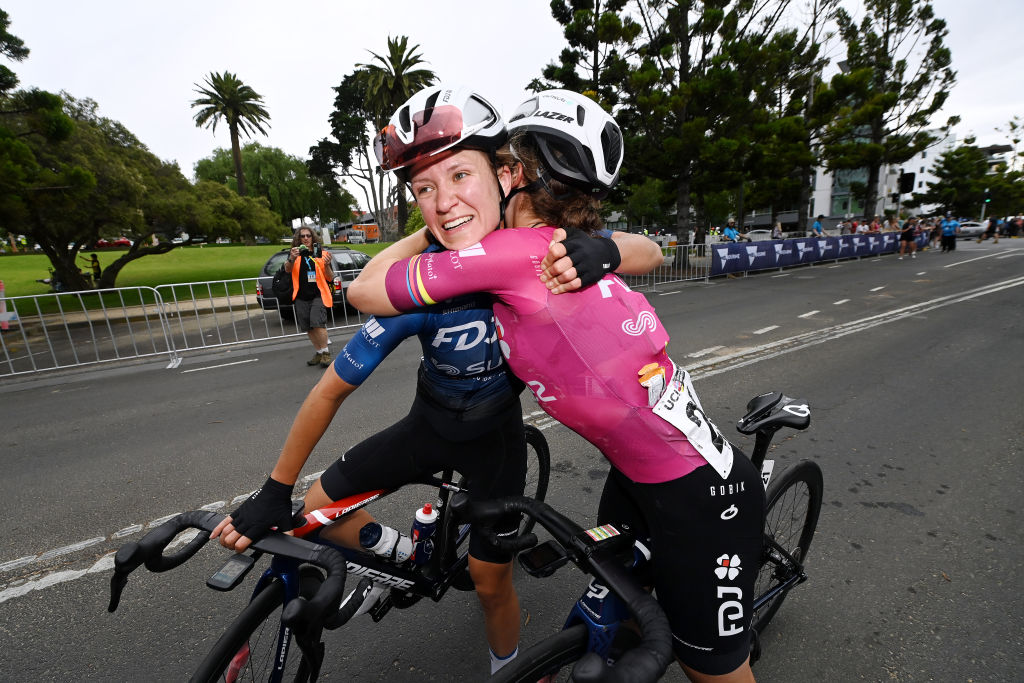Less than a month into her first season at the top level of women’s cycling, Loes Adegeest (FDJ-Suez) has already put her name on a Women’s WorldTour one-day race, winning the Deakin University Elite Women’s Race at the Cadel Evans Great Ocean Road Race in a two-up sprint against Amanda Spratt (Trek-Segafredo).
Adegeest has done the occasional WorldTour race since 2018 but it was her Zwift exploits in virtual racing where she won the 2022 e-cycling World Championships that drew notice and got her a contract with FDJ-Suez, and Adegeest put her experience to good use in Geelong.
“I’m used to doing Zwift racing in the winter, and I think that helps a lot. With the heat and the intensity, this is a really good course for Zwift racers,” Adegeest told reporters after stepping up to the podium in Geelong. “Do an effort, then rest again and go all-out again, that’s just how Zwift races are, so I’m used to this.
“I think many riders have to race a bit more on the road to really get into shape, and I didn’t really struggle with the heat either because it’s warm indoors. We had a good camp on the road with the team in December, I felt strong there already, so I had some confidence coming here.”
Brown had won the women’s Tour Down Under, beating Spratt to stage 3 and the overall win, and was expected to be the FDJ-Suez leader at the race which started and finished in Geelong, too. But as Adegeest performed well the first time up Challambra Crescent, the team switched its tactics mid-race.
“Plan A was obviously to go for Grace. After the first climb, that worked well for me because I didn’t have to ride in the group. But we switched before the second climb, and she did the lead-out for me there,” said Adegeest.
“I was able to follow Spratt on the first climb, and I was actually the only one really able to do so. It wasn’t sure if Grace would make it back, so I already knew on the top of the first climb that it could be for me today,” she continued.
After the climb, Adegeest and Spratt held off the chasers by working together initially, but then the Dutch rider held back and in the final kilometre neither wanted to lead out the sprint, leading to a very slow pace that almost resembled track stands.
“I had thought the sprint through. I knew it was headwind, so I had to start late, but I wanted to start on the downhill part, late, but not too late, and I just knew I had to come from the rear. I forced Spratt to the front, the gap was big…
Click Here to Read the Full Original Article at CyclingNews RSS Feed…

